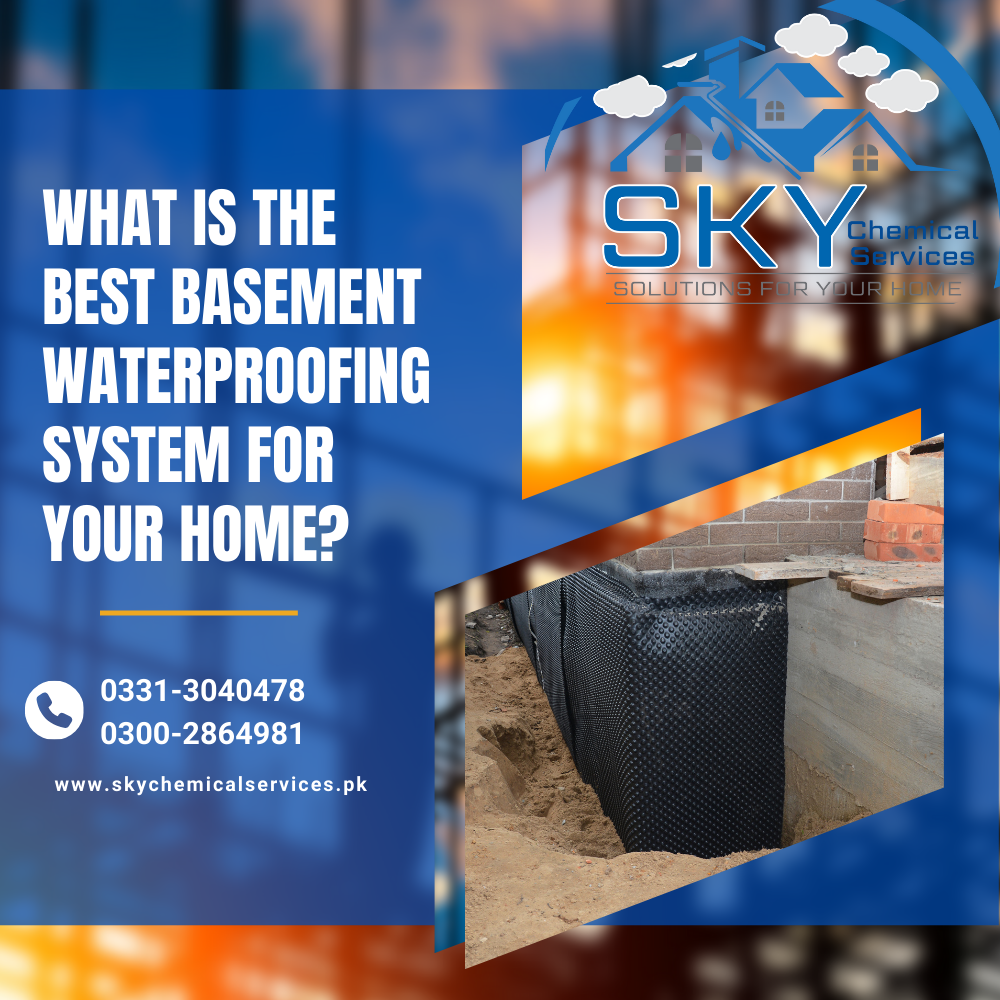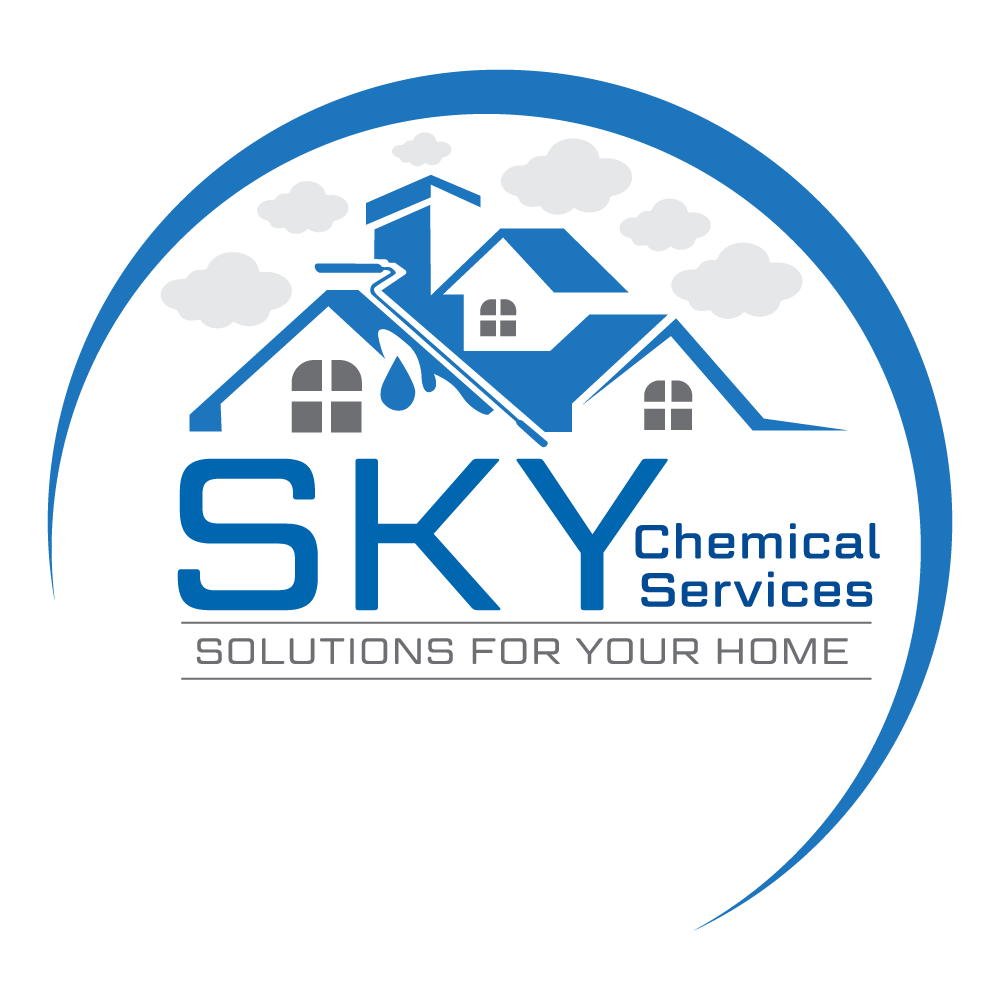A dry basement is one of the most valuable features a home can have. Not only does it protect your property from costly water damage, but it also provides peace of mind knowing your foundation is secure. Still, many homeowners struggle to figure out which basement waterproofing system is truly the best for their home. The answer isn’t one-size-fits-all—it depends on your property, your budget, and the problems you’re trying to solve.
In this article, we’ll explore the different basement waterproofing systems available, how they work, and how to decide which one is right for you. We’ll also touch on why working with experienced professionals, like Sky Chemical Services, can make all the difference in getting a lasting solution.

Why Basement Waterproofing Matters
Basements are naturally prone to moisture because they’re built below ground level. Rainwater, melting snow, and even groundwater pressure can seep through cracks in your foundation or around windows and joints. Without a proper waterproofing system, you may end up with:
- Mold and mildew growth
- Musty odors
- Cracked walls or floors
- Damage to stored belongings
- Reduced property value
In extreme cases, water infiltration can even weaken the foundation. Waterproofing is not just about keeping your basement dry—it’s about protecting the structural integrity of your entire home.
Types of Basement Waterproofing Systems
There are three main categories of basement waterproofing systems: interior, exterior, and drainage-based solutions. Each has its own strengths and limitations.
1. Interior Basement Waterproofing Systems
Interior systems are designed to manage water that has already entered your basement. They don’t stop the water from coming in, but they help control it.
- Sealants and Coatings: Applying a waterproof coating or epoxy to basement walls can reduce minor seepage. However, this is often a short-term fix and works best for dampness, not active leaks.
- Interior Drainage Systems: This involves installing a drain system along the inside perimeter of the basement. Water is collected and directed to a sump pump, which discharges it away from the home.
Best for: Homes with minor leaks, condensation issues, or where exterior waterproofing isn’t feasible.
2. Exterior Basement Waterproofing Systems
Exterior waterproofing focuses on keeping water out before it enters the basement. This usually involves heavy excavation.
- Excavation and Membrane Installation: Contractors dig around the foundation, clean the walls, and apply a waterproof membrane or coating. Drainage tiles or pipes may also be installed.
- Grading and Landscaping Adjustments: Redirecting surface water with proper grading, downspout extensions, or landscaping can also prevent water from pooling near the foundation.
Best for: Homes with frequent or severe water infiltration problems and new constructions.
3. Drainage Solutions
Waterproofing is not only about blocking water but also about giving it a proper escape route.
- French Drains: A gravel-filled trench with a perforated pipe that redirects water away from your home.
- Sump Pumps: Essential in many systems, sump pumps collect and pump out water before it can cause damage.
- Exterior Drainage Systems: Underground pipes and drains can help manage groundwater around your foundation.
Best for: Homes with high water tables or where water consistently collects around the foundation.
Not every home needs an expensive exterior excavation project, and not every basement problem can be solved with a coat of paint. Here are some factors to consider:
- Source of the Water: Is it seeping through cracks, coming from condensation, or entering due to poor drainage outside?
- Severity of the Problem: Occasional damp spots may require a simple interior solution, while constant flooding demands a more robust system.
- Budget: Interior systems tend to be more affordable, while exterior systems are costlier but more comprehensive.
- Future Plans: If you’re finishing your basement, investing in a long-term solution like exterior waterproofing may be the smarter move.
- Professional Assessment: A trusted contractor can identify the real cause of water problems and recommend the right solution.
Why Work With Professionals Like Sky Chemical Services
DIY solutions might seem appealing, but basement waterproofing is complex. A misdiagnosis or poorly executed fix can lead to recurring issues that cost more in the long run. This is where professional expertise comes in.
Sky Chemical Services specializes in basement waterproofing and uses advanced materials and proven techniques to provide lasting results. Their team doesn’t just patch visible cracks; they assess the underlying causes of water intrusion and design a tailored system for your home. Whether it’s applying high-grade sealants, installing sump pumps, or creating exterior drainage solutions, Sky Chemical Services focuses on durability and reliability.
Working with experienced professionals ensures:
- Proper diagnosis of water problems
- Use of high-quality, long-lasting materials
- Correct installation techniques
- Warranties and peace of mind
Maintenance Tips for a Dry Basement
Even after waterproofing, regular maintenance is important:
- Keep gutters and downspouts clear
- Extend downspouts at least 6 feet from the foundation
- Check sump pumps regularly to ensure they’re working
- Inspect basement walls and floors for new cracks
- Make sure landscaping slopes away from your home
By combining a strong waterproofing system with good maintenance habits, you can keep your basement dry year-round.
The best basement waterproofing system for your home depends on your specific situation. Interior systems may be sufficient for minor leaks, while exterior waterproofing is ideal for severe or recurring water problems. Drainage solutions like sump pumps and French drains are often essential additions.
If you’re unsure where to start, reach out to professionals like Sky Chemical Services. Their expertise ensures you don’t waste money on temporary fixes and instead invest in a system that keeps your basement dry for decades. A dry basement is more than comfort—it’s protection for your home’s foundation and your peace of mind.
Frequently Ask Questions
1. What is the most effective basement waterproofing method?
The most effective method depends on your home’s needs. Exterior waterproofing provides the most long-term protection, while interior drainage systems are great for controlling leaks.
2. How do I know if my basement needs waterproofing?
Signs include damp walls, musty odors, visible cracks, water stains, or standing water after rain.
3. Can I waterproof my basement myself?
DIY sealants can help with minor dampness, but professional waterproofing is recommended for lasting protection and preventing structural damage.
4. What role does a sump pump play in waterproofing?
A sump pump collects and removes water from the basement, preventing flooding and reducing hydrostatic pressure around your foundation.
5. How long does basement waterproofing last?
With professional installation and proper maintenance, waterproofing systems can last for decades.
6. Why should I hire Sky Chemical Services for waterproofing?
Sky Chemical Services provides expert assessments, uses high-quality materials, and delivers reliable solutions tailored to your home’s needs.
